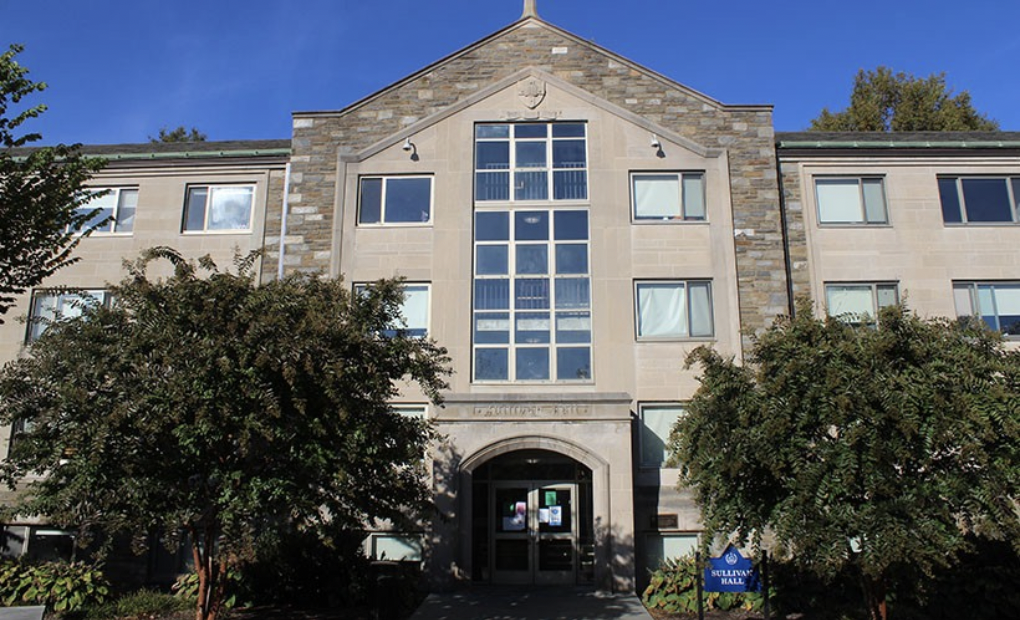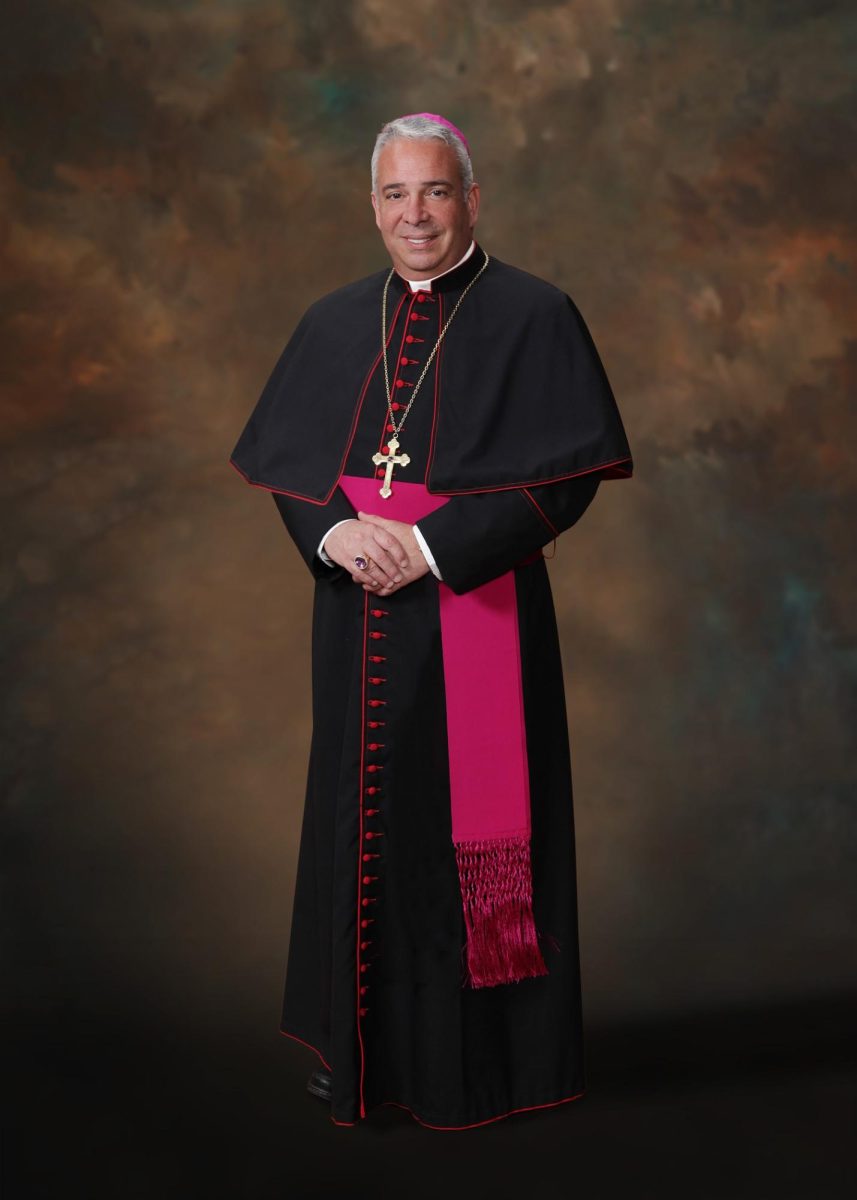
Villanova’s Student Government Association, or more simply referred to as “SGA” by many, is intended to serve as the voice of the undergraduate student body. This organization embraces the structure inspired by the United States government, mirroring the three-branch system with executive, legislative and judicial branches. This model aims to address pressing issues that directly impact students while fostering a culture of democracy and accountability. However, former members, including junior Tyler Moore and senior Preston Muñoz, state that it is this structure itself that leads to issues like inner cliques, which hinder the group’s effectiveness and leads to dysfunctionality within the organization.
Moore and Muñoz describe how they both joined SGA during their first years at Villanova and expressed their initial excitement and interest in the program. They became deeply involved in the organization, both rising to leadership positions as they continued to spend their time serving in the group. However, as time progressed and dynamics began to shift, Moore and Muñoz began to grow disinterested in the program. Specifically, when the “Group of 15” came to be that Moore and Muñoz noticed a stark shift in the way in which SGA was being run. The Group of 15 is composed of the President, Vice President and 13 other chairpersons. After each general body meeting, this select group would meet for an additional 45 minutes. Muñoz described these meetings as “disheartening,” as it seemed like the real decisions were being talked about there, instead of with everyone in the organization.
“If I had a project or bill I was working on, and they chopped it in that 45-minute meeting, that’s disheartening,” Muñoz said. “It doesn’t matter what I did if I wasn’t in that room.”
“I wasn’t necessarily being consulted or taken seriously. Things were going past me,” Moore said. “I couldn’t catch up with it.”
They both furthered these claims about the dysfunctionality of the Group of 15 by saying how it often just felt like a gossip session and how the whole structure appeared very hierarchical.
Dean Millard, current Student Body President of Villanova’s undergraduate community, and Kenza Idrissi Janati, current Student Government Association’s Vice President of Diversity, Equity and Inclusion, responded to these comments.
“We are aware of displeasure with the ‘Group of 15’ and have worked diligently to modify SGA’s structure to increase inclusivity,” Millard said. “Last semester, we changed the structure to cycle between General Body Meetings, Collaborative Idea and Working Sessions and Senate Meetings.”
“Our mission as the Leadership Council, formerly known as ‘Group of 15,’ is to convene as SGA leaders (Committee Chairs, Department Heads and Branch Leadership) on how to better support the members of the Student Government Association,” Janati said. “Additionally, the President, Vice President and Vice President of Diversity, Equity and Inclusion use this time to check in on the Group of 15, often reflecting on what we can do better as SGA leaders to serve the organization.”
Another issue raised by both Moore and Muñoz was the budgeting component of SGA. SGA is given a lump sum of money, which is expected to be distributed to any and all clubs and organizations that need extra money for whatever reason. However, because many students are unaware that SGA has these resources available for them, the money is often not used.
“If money isn’t used, it just goes away,” Muñoz said. “There’s a major lack of transparency within the finance department. It’s an approachability thing. All of the clubs or organizations that came to us this year were because they had personal connections to a senator.”
“I think it becomes a point where SGA appears unapproachable,” Moore said. “If the organization is not approachable to the common student, change can’t happen. It’s been the same collective leading for the past few years and there needs to be some new faces in the mix. If you create a more diverse general body within SGA, you will hit more areas on campus.”
J.J. Brown, current SGA Student Supervisor, provided some insight on the budgeting component of SGA.
“The President and VPs essentially work on a budget proposal, just like the U.S. government,” Brown said. “They work collaboratively with each other to set a budget. That funding is either put toward student organizations or toward student efforts themselves. The goal is to work with that student group to provide some of that follow-through.
“The money raised by SGA that year is rolled over, and university funding isn’t,” Brown said when asked what happens to the unused budget. “But, the leftover money is looked at to see how students can be best supported in the next year.”
Lack of participation in the organization itself is another pressing issue the group faces. Both Moore and Muñoz said how positions are not even being filled. They described an example about how, previously, when there were six positions available, there would typically be around 18 individuals vying for those positions. However, it’s now becoming increasingly challenging to gather even six individuals willing to fill the open spots.
“There were no contested races for the freshman this year, which was very, very shocking,” Muñoz said. “For first-year students to not have that same attitude as they come in is very interesting.”
“Running for office is stressful, and we try to provide support to the people who are doing it, but sometimes it is not enough,” Brown said. “It is not worth it for people, as it can take a toll on their mental health.”
Millard and Janati also replied to the growing concern about lack of participation within the organization.
“SGA should undoubtedly be doing more to establish a stronger presence on Villanova’s campus, and that is what we plan to do,” Millard said. “By tabling, holding town halls and inviting students to collaborate with us in the SGA office, we can meet the needs of Villanova’s undergraduate student body more adequately.”
“While there may be fewer students interested in running positions, I do not think this reflects a decreased interest in the Student Government Association as a whole,” Janati said. “Speaking as the former Vice President of Diversity, Equity and Inclusion, the DEI Department alone nearly doubled in size, as passionate students eagerly joined SGA to make our Villanova community a more supportive and inclusive space for all students of different backgrounds and identities.”
Despite the challenges the organization may face, all parties spoke fondly about their time spent in SGA and believe there is a future for the group.
“We did love SGA, there were so many relationships and memories that we gained, but we do hope that as we graduate and move on that the next generations of Villanovans save this club,” Muñoz said.
“From two outgoing members, we really want SGA to be a powerful presence on campus,” Moore said.
“These students are really passionate about making Villanova a better place,” Brown said. “Dean [Millard] is in my office everyday looking for ways to improve the organization. I am really optimistic about the future because the energy is there.”
Brown also spoke about what the team has been able to accomplish this year, including mental health days, adding a free menstrual product dispenser in the Dougherty Hall first floor bathroom and promptly reinstating the “Class Schedule with Photos” feature for students on MyNova. He also said how he and the group are excited for the free laundry initiative to be implemented in the fall.
Millard is also excited for the future, especially from a leadership standpoint.
“The future of SGA is incredibly bright,” Millard said. “In the next year, SGA will become an organization that is a well-recognized resource that students can utilize. SGA will consist of student representatives who are approachable, innovative, creative and collaborative in action.”
He also spoke about plans for next year.
“Our primary initiatives include raising the minimum wage for student workers, expanding the free menstrual product dispenser initiative, adding a pre-law concentration to the political science and criminology majors, helping to improve the food on campus and assisting with the development and outreach of organizations,” Millard said. “However, as always, we will prioritize the ideas that the students are most passionate about.”







